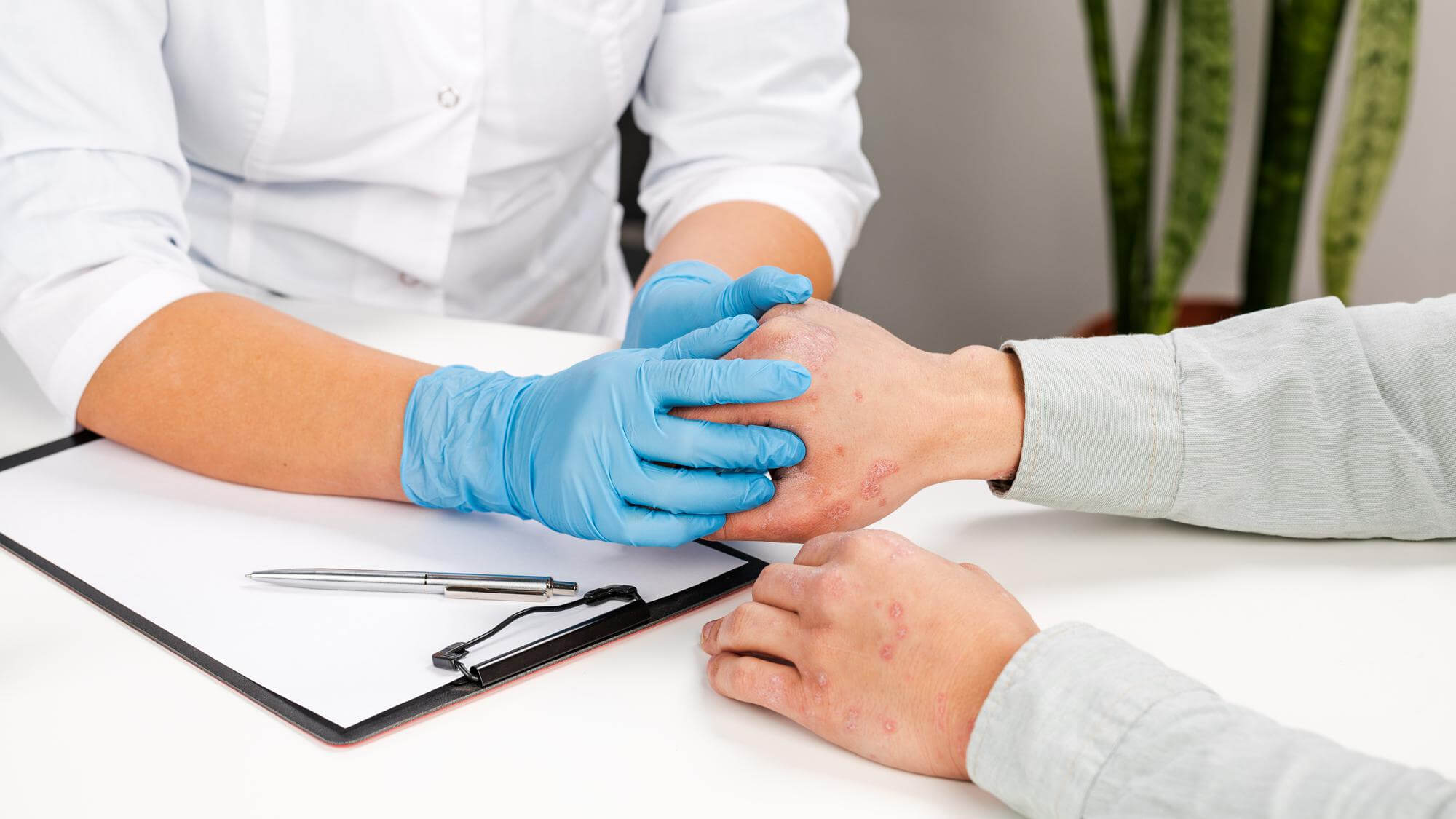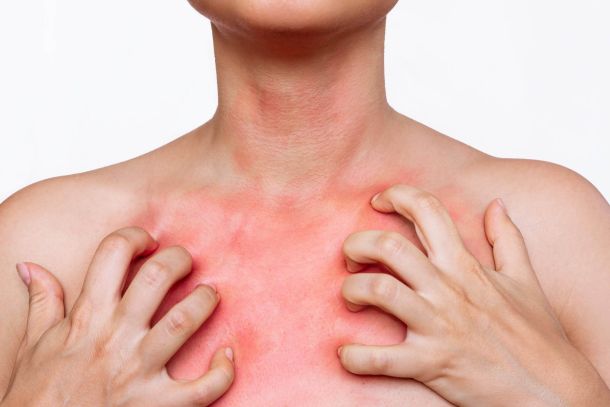Current approaches to treating and preventing atopic dermatitis


Eva Zakharova
What is atopic dermatitis?
Atopic dermatitis is a chronic inflammatory skin disease that is often associated with atopic allergies. It can appear on any part of the body, including the face, arms, legs, and also in the scalp.
Atopic dermatitis is classified according to its stage (acute, sub-acute or chronic), the severity and spread of the lesion. This disease can occur at any age, including children and adults.
Symptoms of atopic dermatitis
Symptoms of atopic dermatitis include redness, itching, swelling, and dry skin. In some cases, a rash may appear, especially on the cheeks, eyelids, arms, and legs. In adults, atopic dermatitis may appear as areas of thick, rough skin, especially on the elbows and palms of the hands.
Causes of atopic dermatitis
Atopic dermatitis is usually related to a hereditary predisposition to atopy, which includes allergies, asthma, and hay fever. Other factors that can cause or exacerbate symptoms include stress, diet, contact with allergens and irritants such as soaps or detergents.
Diagnosis of atopic dermatitis
Diagnosis of atopic dermatitis includes history taking, physical examination, and, in some cases, allergy tests. An allergist or dermatologist may perform diagnostic tests to determine the possible causes of the disease.
Treatment of atopic dermatitis

Topical therapy remains the basis of treatment of atopic dermatitis. It includes the use of ointments and creams that help soften the skin and reduce inflammation.
Ointments and creams for atopic dermatitis usually contain active ingredients such as corticosteroids (e.g., Hydrocortisone, Flucinar) and calcineurin inhibitors (e.g., Protopic, Eldelim). These medications help reduce inflammation, itching, and redness.
Systemic treatment is usually used for more severe forms of atopic dermatitis and may include immunomodulators or biologicals.
Biologic drugs such as Dupixent (dupilumab) are the newest agents in the treatment of atopic dermatitis. They specifically block the inflammatory pathways associated with the disease.
Immunomodulators, such as cyclosporine, can also be used to manage the symptoms of atopic dermatitis.
It is important to understand that each person has atopic dermatitis in a different way, and treatment must be individualized. A comprehensive approach is important, including compliance with the diet, the use of appropriate skin care products and, if necessary, taking medications.
Prevention of atopic dermatitis includes avoiding known triggers, keeping the skin moisturized and learning to manage stress.
In conclusion, I would like to point out that despite the chronic nature of atopic dermatitis, modern treatment methods can greatly improve the quality of life of patients. However, it is important to remember that atopic dermatitis requires constant medical monitoring and selection of an individual treatment plan.
Particular attention should be paid to the condition of the skin during pregnancy, since exacerbations of the disease are possible during this period. In such cases, it is necessary to consult with a specialist, who takes into account all the risks and chooses the safest scheme of therapy.
Do not forget about folk remedies, which can be an additional means to maintain healthy skin, but before using them, be sure to consult a doctor.
It is also important to remember that atopic dermatitis can be related to psychosomatics, so it is important to support not only physical but also psychological health.
Remember that atopic dermatitis is not a contagious disease, and you should not hesitate to ask your doctor for help or advice. Your health is your future, and on your journey to better health, it is important to know that you will get help and support.
New materials
Popular Articles
We recommend reading
Contact us in the Contact Us section to ask questions, offer ideas, or for more information about our allergy resource.
Our articles are your trusted source of allergy knowledge. Learn how to make life with allergic reactions easier on our specialized portal.
©
Lechenie-Allergii.com. All rights reserved.
© Lechenie-Allergii.com. All rights reserved.
The information on this site is for informational purposes only and is not a substitute for professional medical advice. We recommend consulting with qualified medical professionals for accurate information and advice.
 English
English  Українська
Українська  Русский
Русский 









